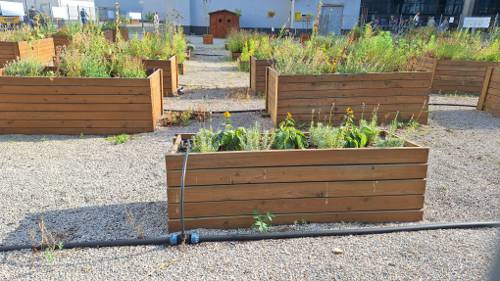
FAQ About Pros and Cons of Automatic Watering Systems

What are the primary benefits of an automatic watering system for indoor plants?
Automatic watering systems offer numerous benefits for indoor gardening. Firstly, they provide consistent and timely hydration to plants, ensuring that plants receive the right amount of water they need without over or under-watering. Secondly, these systems save time and effort for users, especially those who have busy schedules or travel frequently, as they automate the watering process. Lastly, they can support plant health and growth by minimizing human error and optimizing water usage, which can lead to thriving indoor gardens.

Are there any cost savings associated with using automatic watering systems?
Yes, automatic watering systems can offer cost savings in the long run. While the initial investment in the system might be higher compared to manual watering tools, these systems are designed to use water efficiently, reducing water waste. This efficiency can lower water bills over time. Additionally, maintaining healthy plants through consistent watering means fewer funds spent on plant replacements and soil amendments due to poor watering practices.

Can automatic watering systems be customized for different plant types?
Most automatic watering systems are customizable and can be adapted to suit various plant types and their specific watering needs. Users can adjust the flow rate, frequency, and duration of watering to accommodate plants that require more or less water. Some advanced systems also offer programmable settings and can handle multiple zones, allowing users to cater to diverse plant species with different moisture requirements within the same environment.

What are some common types of automatic watering systems available?
There are several types of automatic watering systems designed for indoor use. Some common types include drip irrigation systems, which deliver water directly to the soil surface or root zone; self-watering pots that incorporate reservoirs to gradually provide water to plants; and smart irrigation controllers that can be programmed or managed via smartphone apps. Each type offers different functionalities and benefits, catering to various gardening needs.

How do automatic watering systems help in conserving water?
Automatic watering systems help conserve water by delivering it directly to the plant roots, minimizing evaporation and runoff. These systems can be programmed to water during cooler parts of the day, further reducing evaporation and water waste. Additionally, by providing the precise amount of water needed, they prevent overwatering, which is a common source of water waste in manual watering.

What are potential downsides to using automatic watering systems?
While automatic watering systems offer many advantages, there are potential downsides to consider. One issue is the upfront cost, which can be higher than traditional watering methods. Additionally, they require routine maintenance to ensure components such as emitters, tubes, and controllers function properly. These systems may also fail due to power outages or technical malfunctions, potentially resulting in under-watering or over-watering if not monitored closely.

Are automatic watering systems suitable for all indoor plants?
While most indoor plants can benefit from automatic watering systems, not every system is suitable for every plant type. Plants with unique water requirements, such as succulents or orchids, might need specific types of systems or additional adjustments. It is crucial for users to understand their plants' specific water needs and select or modify systems accordingly to ensure optimal plant health.

Do automatic watering systems require regular maintenance?
Yes, like any mechanical or electronic device, automatic watering systems require regular maintenance to operate efficiently. Users should routinely check for clogs in emitters and tubes, test sensors and timers for accuracy, and ensure that the entire system is free from leaks. Regular maintenance can prevent potential issues like over-watering or under-watering, ensuring the system runs smoothly and effectively over time.

Can automatic watering systems integrate with smart home devices?
Yes, many advanced automatic watering systems can integrate with smart home devices, providing additional convenience and control. Smart irrigation controllers can be managed through smartphone apps, allowing users to monitor and adjust their watering schedules remotely. This integration also facilitates the adoption of water-saving technologies such as weather-based adjustments that automatically modify watering schedules based on local climatic conditions.

How do automatic watering systems contribute to plant health?
Automatic watering systems contribute to plant health by ensuring consistent and precise watering, which is essential for proper growth. By eliminating human error in watering frequency and quantity, these systems help prevent common issues such as root rot from overwatering or dehydration from under-watering. Consistent watering supports healthy root development, nutrient uptake, and overall plant vitality.

What are some features to look for when choosing an automatic watering system?
When selecting an automatic watering system, it's important to consider features like ease of installation, compatibility with different plant types, and customization options. Systems that offer programmable schedules are beneficial for personalizing watering to suit specific plant needs. It is also advantageous to choose a system that integrates with smart technology, allowing for remote management and adjustment.

Is it possible to manually override an automatic watering system?
Yes, most automatic watering systems allow for manual override in case adjustments are necessary. This feature is beneficial for instances where unexpected weather conditions or changes in plant health require immediate alteration of the watering schedule. Manual intervention options provide the user with flexibility to ensure optimal plant care irrespective of the automated settings.

Can automatic watering systems detect soil moisture levels?
Some advanced automatic watering systems are equipped with soil moisture sensors that detect moisture levels and adjust the watering schedule accordingly. These sensors help optimize water delivery, preventing over-watering when the soil is already moist and ensuring that plants receive water only when necessary. This feature enhances water efficiency and aligns watering practices with actual plant needs.

What is the expected lifespan of an automatic watering system?
The expected lifespan of an automatic watering system varies depending on its quality, usage, and maintenance. Typically, well-maintained systems can last anywhere from several years to a decade. Regular maintenance, such as cleaning and replacing worn parts, can significantly extend the system's life, offering reliable and long-term gardening assistance.

How can automatic watering systems be used in urban gardening environments?
Automatic watering systems are ideal for urban gardening environments where space is limited, and plant care routines need to be efficient. These systems can be implemented in indoor gardens, rooftop gardens, or balcony setups, providing an effective way to manage water for a variety of plants in small spaces. Their ability to automate and optimize watering makes them particularly advantageous for urban gardeners seeking convenience and precision.

Are there energy consumption concerns with automatic watering systems?
Automatic watering systems generally use minimal energy, especially if designed with energy efficiency in mind. Most systems are powered by low-voltage transformers or batteries. Energy-saving models and options for solar-powered components further reduce energy consumption. As with any electronic device, being mindful of the system's energy requirements can help select an eco-friendly option.

Do automatic watering systems contribute to pest problems?
Automatic watering systems can potentially contribute to pest problems if not managed correctly. Overwatering can lead to excess moisture, creating a favorable environment for pests such as fungus gnats. Properly adjusted systems that avoid overwatering can mitigate such risks. Regularly monitoring the system and plant health ensures that pest issues are minimized.

How do weather-based adjustments work in automatic watering systems?
Weather-based adjustments in automatic watering systems utilize weather data to modify watering schedules. These systems, often connected to weather stations or apps, analyze local forecasts and conditions such as temperature, humidity, and precipitation. Based on this data, the system can alter the frequency and quantity of watering, ensuring plants receive the right amount of water in response to weather changes.

Are there any environmental concerns associated with automatic watering systems?
Environmental concerns related to automatic watering systems mostly involve water use efficiency and potential electronic waste. Properly designed systems enhance water conservation, reducing wastage and runoff. To mitigate electronic waste, it's important to choose durable systems and maintain them well. Some users also opt for systems with recyclable components or energy-efficient features to minimize environmental impact.

What should I do if my automatic watering system malfunctions?
If an automatic watering system malfunctions, first check for common issues like clogs in the tubing or emitters, and ensure that power sources are functioning. Refer to the manufacturer's troubleshooting guide, as it can provide solutions for specific problems. If the issue persists, contacting customer support or a professional technician might be necessary to repair or replace faulty components, ensuring the system's proper function.
